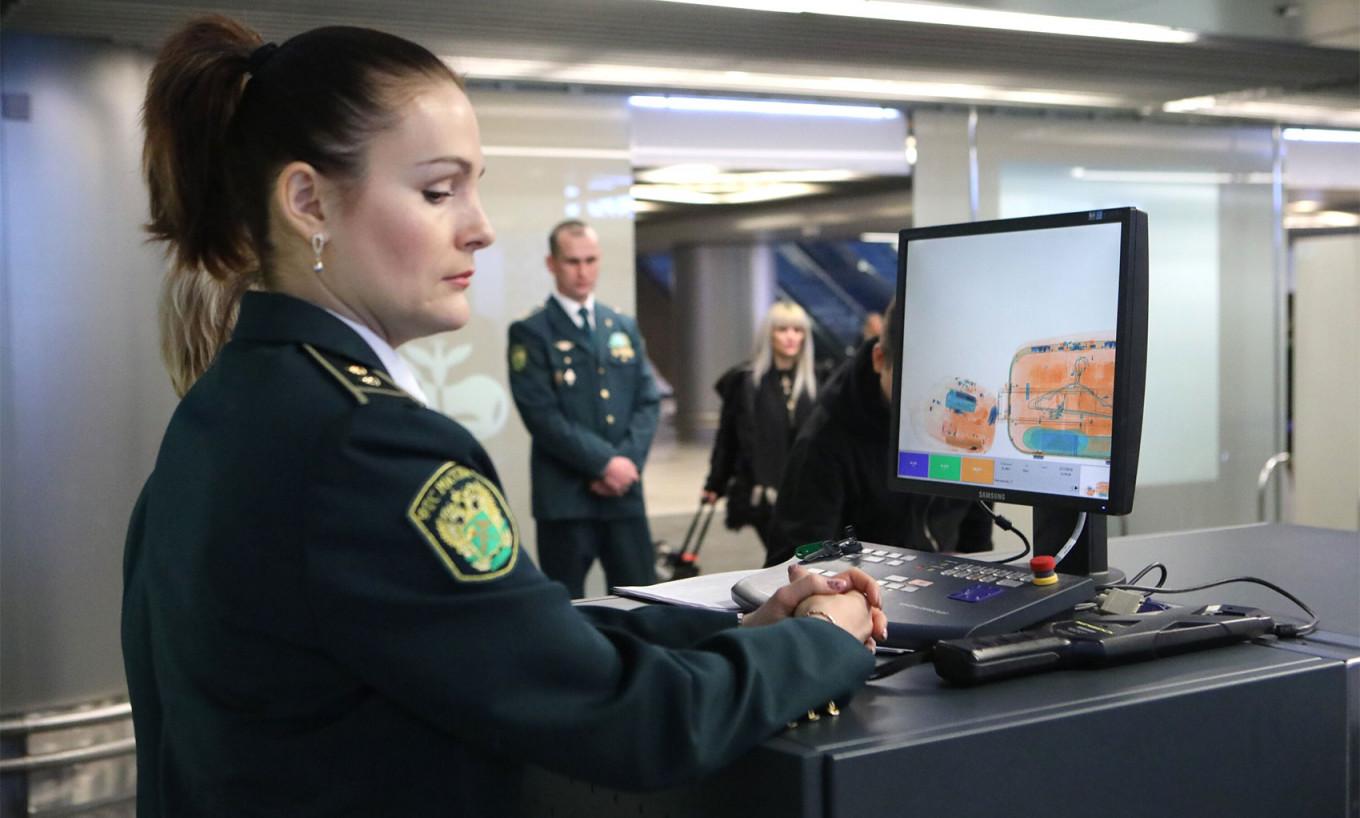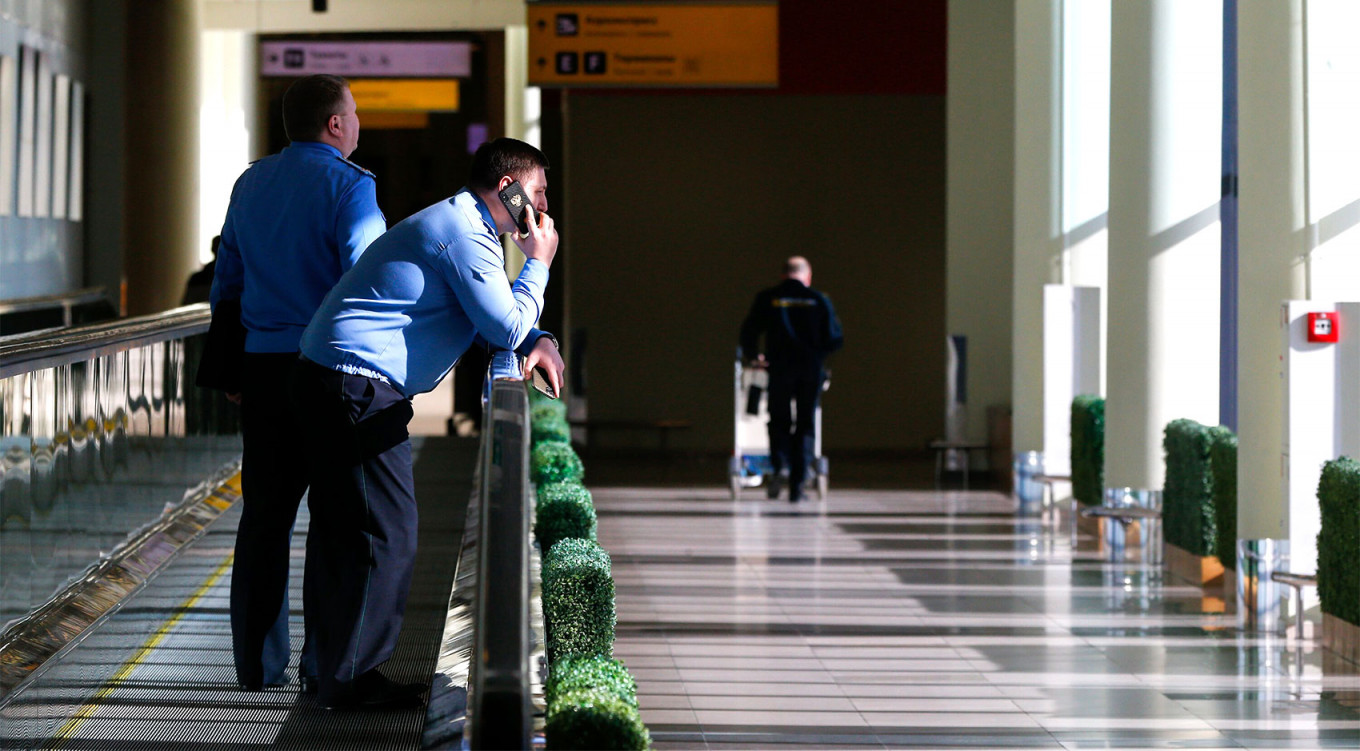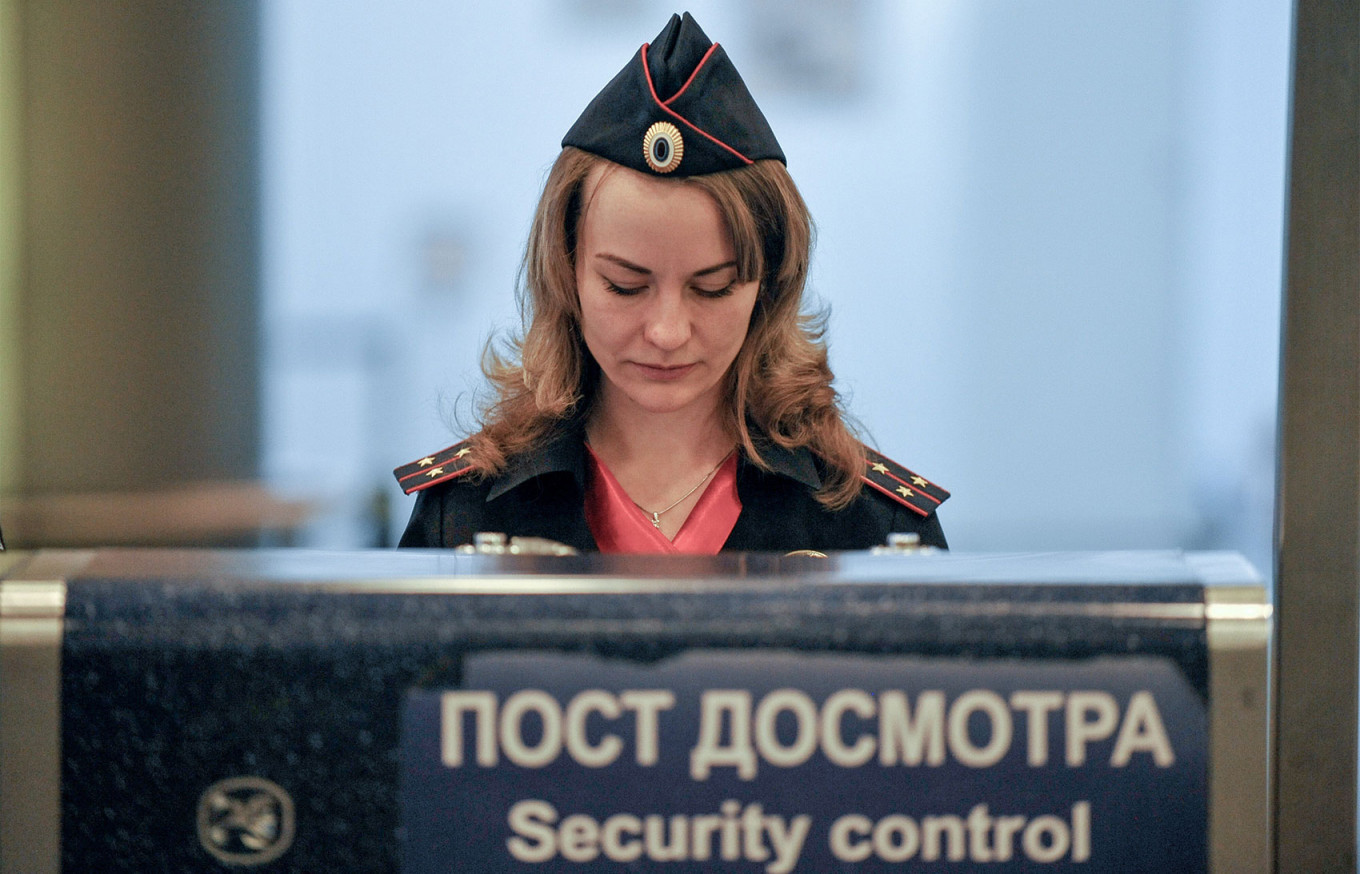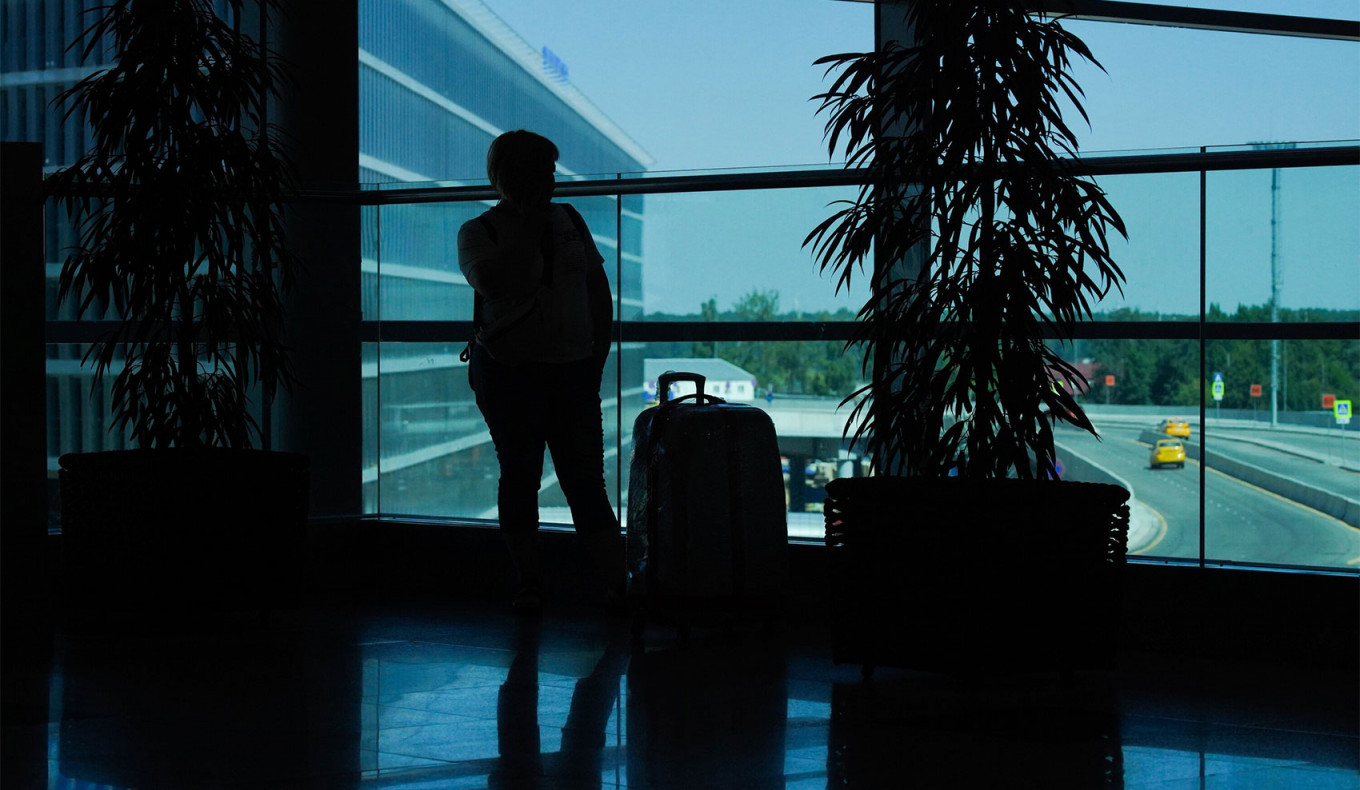Before being allowed to enter Russia last month, a business owner from a European Union member state was forced to give border officials at Moscow’s Sheremetyevo Airport the name of every Ukrainian in his cell phone contact list.
“He [the border guard] searched my phone and wrote down about eight or nine Ukrainian numbers on a sheet of paper,” he told The Moscow Times.
“They took me to a special room and started asking me if I have any friends in Ukraine, why I’m in Russia, what my job is here, if I have Russian relatives,” he said.
The Moscow Times spoke with six Westerners who have been interrogated by security officials after flying into Russia since the beginning of the war in Ukraine, adding to growing evidence that foreigners – particularly those from Europe or the U.S. – are being singled out for questioning.
Their accounts come as Russia’s invasion of Ukraine has caused relations between Moscow and the West to plummet to near-historic lows. Russian officials have said repeatedly that they believe they are fighting a proxy war against U.S.-led military alliance NATO.
Of the three Westerners that agreed to talk in detail about their experiences, requesting anonymity to speak freely, all told similar stories of hours-long questioning, searches of their cellphones and attempts to establish whether they had ties to Ukraine.
The EU national, who was questioned for three hours after arriving in Moscow from the Armenian capital of Yerevan, said this was the first time he had experienced such a level of interest from border officials, despite having lived in Russia his whole life.

“I’m guessing their logic was to see if I said something that would expose me as being the enemy,” said a U.K. citizen who was questioned when he arrived in Moscow from Dubai for an April work visit to the Russian capital.
“They took me down into this room at Domodedovo and there were lots of different security, FSB, and different people coming in over the course of the five hours,” he said.
Most European countries were included on a Russian list of countries officially designated as “unfriendly” that was published less than two weeks after the start of the invasion.
According to a Russian migration lawyer who spoke to The Moscow Times on condition of anonymity, Russia’s Federal Security Service (FSB), which manages border security, has been instructed to pull aside those who hold passports from “unfriendly” countries.
All interviewees told a similar story of being directed away from normal passport control booths to a waiting area full of foreigners. From there, individuals were taken into separate rooms for questioning.
“My sense was that there was an evolution from random airport security to higher-level people and then towards the end I suspect it was people who knew exactly who I was,” the U.K. citizen said of his experience. “The questions were about everything: me, my work, family, my attitude towards the ‘special operation,’ all sorts of things.”

Each foreigner interviewed by The Moscow Times reported having their phone confiscated by officials, who then took the device into a separate room – apparently to examine it.
“I asked if he had the right to do that and he cited some law,” the EU business owner said.
When the U.K. national asked why they wanted his phone, he said officials told him that they were “interested in what I read and what media I look at.”
The U.S. Embassy in Moscow earlier this month warned that a number of its citizens traveling to Russia have had their electronic devices searched at the border.
“U.S. citizens are reminded there is no reasonable expectation of privacy when using electronics in Russia,” the embassy said.
Another British national, who has worked in Moscow as a teacher for three years, reported a similar experience at the capital’s Vnukovo Airport after arriving on a flight from the Armenian capital of Yerevan.
Border officials held him for an hour and a half, he said, during which time they confiscated his cellphone and apparently went through his messages on WhatsApp.

“You don’t know if they’re going to try and put some kind of software onto your phone, or what they’re looking at. It’s like having someone go through your house whilst you’re outside,” he said in an interview.
Despite the apparent increase in checks, there is no obvious logic to who has been stopped at the border, or for how long.
All three interviewees said that it was the first time they had experienced such extensive questioning at the Russian border.
The FSB at Moscow airports Domodedovo, Sheremetyevo and Vnukovo airports did not respond to a written request for comment about a change in border policy.
The targeting of Westerners is likely a result of heightened national security amid the “current situation,” as well as an act of reciprocity for Russian nationals traveling abroad who experienced “similar cases,” according to Timur Beslangurov, a migration lawyer at Moscow’s VISTA Foreign Business Support.

Beslangurov added that his firm did not have any advice for foreigners stopped at the border other than to follow the requests of officials.
The increased scrutiny comes despite a dramatic fall in the number of Westerners traveling to Russia following the invasion of Ukraine.
Many foreigners residing in Russia chose to leave amid a drastic reduction in the number of international flights, an imminent recession and an exodus of European and U.S. companies from the Russian market.
While some of those departures are likely to be temporary, growing hostility toward foreigners at the border – and increasingly belligerent anti-Western rhetoric from officials – look set to ensure that many never return.
“It would dissuade anyone from wanting to go through the immigration here,” said the British teacher of his recent experience at the border.
He said he was planning to leave Russia this summer and move to the South Caucasus.
“I think it could be the last straw for some people,” he said.